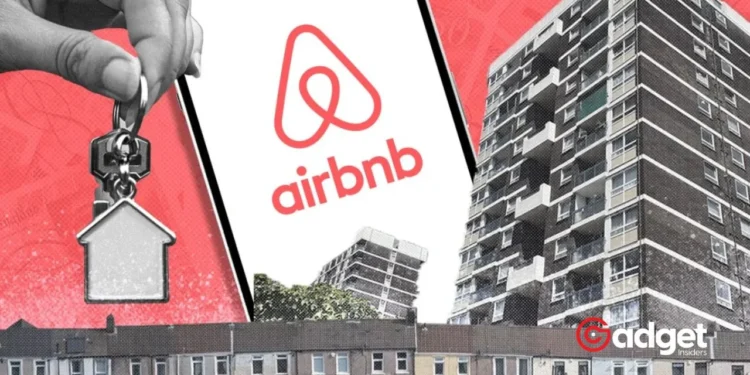The serene streets of the UK’s tourist hotspots are witnessing a quiet upheaval, one that’s causing ripples across housing markets and local communities like Airbnb alike. As picturesque towns morph into bustling hubs for holidaymakers, a significant transformation is underway in the housing sector.
At the heart of this change are landlords, who are increasingly turning their backs on traditional long-term rentals in favor of the potentially more lucrative Airbnb and holiday lets market.
This trend, fueled by the allure of higher profits and fewer tenant-related hassles, is not without its consequences, leading to a notable scarcity in private rental housing and sparking a debate among policymakers and the public.

The Airbnb Effect: Boon for Tourism, Bane for Tenants
The boom in domestic tourism, coupled with stringent regulations for long-term landlords, has led to a burgeoning growth in properties being used for short-term lets.
This phenomenon, while beneficial for tourists seeking local accommodations, is exacerbating housing shortages, especially in areas where local workers are finding it increasingly difficult to secure housing.
The picturesque town of Scarborough stands as a testament to this shift, with private rental properties in its center dwindling from an average of 25 homes available at any given time in 2017 to a mere six in 2022.
Legislative Responses: A Call for Balance
In an attempt to address the mounting housing crisis, Rachael Maskell, the York Central Labour MP, has stepped forward with a private member’s bill. The proposed legislation aims to regulate the transition of domestic properties into short-term and holiday-let accommodations.
By introducing a licensing system, empowering local authorities to issue fines, and potentially banning such properties in critical areas, the bill seeks to restore balance to a housing market skewed by the short-term rental boom.

A Local Issue with National Implications
The challenge of balancing the needs of tourists with those of residents is not confined to picturesque towns alone. Major cities like London are also feeling the pinch, with Airbnb listings quadrupling between 2015 and 2019, further straining an already tight housing market.
The government’s consultation on this issue, with a deadline for responses set for 21 September, underscores the national scale of this dilemma.
Big Data Meets Short-Term Rentals: The UK's Office for National Statistics will soon analyze Airbnb, https://t.co/jLBa4LaGao, and Expedia data to better understand the sector's impact. Starting spring 2024,
Read more:
🔗 https://t.co/cI2bvM7575#HomesearchProperties pic.twitter.com/P1SfpWzzVs— Homesearch Properties (@HomesearchProp) January 15, 2024
The Landlord Perspective: Flexibility vs. Stability
Landlords, for their part, argue that the shift towards Airbnb is driven not only by financial incentives but also by past negative experiences with long-term tenants. The flexibility offered by platforms like Airbnb, alongside the potential for higher earnings, is seen as a significant advantage.
This sentiment is encapsulated in the words of a landlord who, after enduring a 14-month ordeal with a non-paying tenant, has decided to pivot towards short-term lets.
Despite acknowledging the need for tenant protections, this landlord highlights the dilemma faced by many: the desire to provide stable housing while also safeguarding their financial well-being.

A Delicate Balancing Act
As this trend continues to unfold, the future of the UK’s housing market hangs in the balance. The move towards short-term lets is not just a simple market shift; it’s a complex issue that touches on the very fabric of local communities, affecting everything from housing availability to local economies.
With both legislative and grassroots efforts underway to address the challenges posed by this trend, the coming years will be crucial in shaping the landscape of UK housing.
As we stand at this crossroads, the actions taken by landlords, policymakers, and communities will determine whether the balance can be restored, ensuring that the housing market caters not just to tourists, but to every resident’s need for a place to call home.










